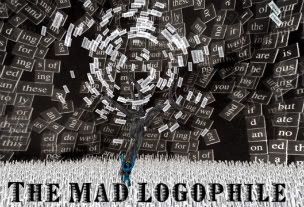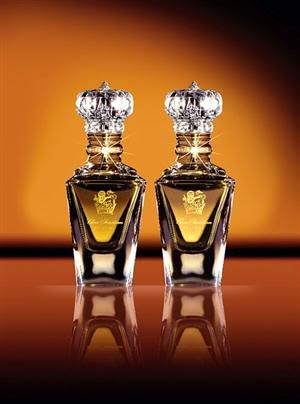
Welcome to The Mad Logophile. Here, we explore words; their origins, evolution, usage. Words are alive; they are born, they change and, sometimes, they die. They are our principal tool for communicating with one another. There are millions of words yet only an estimated 171,476 words are in common current use. As a logophile, I enjoy discovering new words, using them and learning about their origins.
This week, part two of words that have changed their meaning. If you missed last week's first part, you can read it here:
http://www.dailykos.com/...
Picking up where we left off...
Nation was once an adjective meaning "very, extremely", derived from the Latin nasci, "to be born."
A navigator was once someone who did earthwork, such as canal construction.
A neck was a term for parcel of land (as in neck of the woods). 
Negligeé once meant "careless attire" from the Latin neglegere, "negligent" as in a woman who neglected housework.
Deriving from the Greek neuron, "nerve", neurotic originally described a drug affecting the nervous system.
The word newt ran afoul of the same letter switching that affected adder and apron. It was an ewt until pronunciation divided the letters differently.
Nice comes from the Latin "not to know." Originally a "nice person" was someone who was ignorant or unaware. Nicety meant "stupidity."
Also a victim of misdivision, nickname was originally eke-name, "eke" meaning "addition."
Nimrod first meant "skillful hunter."
Normal first meant "right-angled" and comes from the Latin norma, "carpenter's rule" or "rule, pattern." Again with the left-bashing!
Someone who was notorious was famous, not necessarily infamous.
Nuisance used to mean an injury or harm rather than a simple annoyance.
An oaf was originally the child of an elf or goblin.
Something obnoxious was liable to harm or injury, from the Latin ob-, "toward" + noxa, "harm, injury."
If a thing was occult, that meant simply that it was hidden. From the Latin ob- + celare, "conceal."
The original meaning of octave was an eight-day festival.
To organize once meant "to give organic structure to."
Overwhelm originally meant "bury" or "drown" and the root of of the word is "over the helm" as in stormy seas breaking over the side of the ship.
Despite what Newt thinks, a pagan was originally a "country dweller" from the Latin paganus. This was equivalent to a modern "hick", and was meant to describe the backwardness of folks who didn't live in the city.
The original palladium was a statue with magical powers which was carved by the goddess Athena in the likeness of her friend Pallas, whom she accidentally killed.
The first meaning of pamphlet was "a collection of love poems."
A pane was originally a piece of cloth or clothing which had several different colors or materials joined side-by-side. From the Latin pannus, "side, next to."
Paraphernalia was once the property that a woman was allowed by law to keep and deal with as her own.
A parlor was a room for conversation in a monastery or convent. From the French parler, "to talk."
A passenger was once a traveler or wayfarer on foot. The word simply meant "one who is passing."
Paste once described dough or pastry. Pasta is paste in Italian. Pastry is a derivative and was coined in the 16th century as a collective term for foods made from dough.
Patriot is from the Latin pattriota, "fellow countryman", and that was its original meaning.
To patter once meant to recite a prayer, as it derives from paternoster, another name for the Our Father.
The original meaning of peculiar is from the Indo-European peku, "wealth expressed in livestock."
A pencil first denoted a very fine paintbrush and is derived from a diminutive of of the Latin peniculus, "brush; little tail."
The penthouse was originally as shed or outhouse that was attached to the main house and sloped away from a building.
Perfume is from the Latin fumus, meaning "smoke" and literally means "through smoke." The first perfumes were burned wood or resin.
The original meaning of person is "part played in a drama." From the Latin persona, a mask worn by actors.
Peruse first meant to use something up or wear it out.
Photogenic was once a synonym of photographic.
A pineapple once described a pine cone, as the cone is the fruit of the pine and apple was a general term for any fruit.
Pioneer was first a military term for an infantryman. From the French pionnier, "foot soldier."
Placebo is Latin for "I shall please" and was originally a response during vespers.
Placenta was originally Latin for a flat cake, like a pancake. It came from the Greek plax, "flat."
Pomade was first a term for apple cider. From the Latin pomme, "apple."
To poop was originally to make an abrupt sound as from a wind instrument.
Porridge started out as pottage and was first a beef and vegetable stew.
Portly was originally a compliment and meant one had a dignified bearing.
Originally a posy was a copy of verses presented to a loved one, along with a bouquet of flowers and an inscribed ring.
Potpourri comes from the French and means "rotten pot." It was first a stew made with different kinds of meat.
Praise once meant to set a price on or attach a value to.
Precocious was first a term in botany for a plant that flowered or fruited early.
Those who saw the film will know that prestige was once a term for a magic trick or illusion.
Pretty originally meant clever, craft or sly.
Something promiscuous consisted of parts or elements of various kinds mixed together with no order.
To protest was once to make a solemn declaration. The term Protestant, describing the religion, comes from the first Protestants repudiating obedience to the Roman Catholic Church. From the Latin pro- + testari, "assert; be a witness."
Prowess first meant bravery in battle.
Prove originally meant to test. The old meaning survives in the phrase "proving ground."
Something pungent was once keenly painful or distressing. After eating wasabi, I posit that this meaning hasn't changed very much.
A pup once referred to a specific breed of dog which no longer exists. A puppy was once a lady's lap dog of any age.
Quaint first described a clever or ingenious person and once meant "elegant, graceful, subtle."
A quarrel was once a square of glass.
To quibble once meant to pun or make plays on words.
Quick once meant "alive." This continues in the term applied to the time of pregnancy in which the fetus can be felt to move; the quickening (also a really bad horror flick). Quicksilver comes from the idea that the element was alive since it moved.
Originally a quilt was bedding material that was lain upon, not under.
Quirk was once a verb meaning to move jerkily.
To quote was to mark a writing with numbers for chapters or references. Quotation meant "numbering."
Radical first meant "forming the basis; original, basic, fundamental." The radicals among us may insist that's still the meaning.
A raffle was originally a dice game played with three dice in which a triplet was a winning throw. Proto-Yahtzee?
Random once meant a headlong rush. From the French randir, "gallop."
Receipt first described a drug made according to a recipe or a recipe for making food. Recipe, as a verb, was once used at the beginning of medical prescriptions and meant, "take." We still have this in the form of Rx.
Recreation had the meaning of "refreshment by taking food" and "mental consolation and comfort."
To reduce once meant to bring back or recall a memory. From the Latin reducere, "lead back."
Renegade first referred to a person who abandoned one religion for another.
Repercussion was once a medical term for repressing an infection.
Resolve first meant "decompose or disintegrate" or separate into parts." From the Latin solvere, "loosen."
Revoke originally meant to bring someone back to a belief or way of life.
Originally rivals were people who lived across the river from one another.
Road once described riding or a "hostile incursion on horseback."
A rocket was once a small rock.
Originally a rosary was a garden of roses. The first rosary beads were made up of beads made from dried rose petals.
Roulette formerly described a hair-curling device or a massage roller.
Sabbatical literally means "pertaining to the Sabbath" and "pertaining to every seven years." Hebrew custom said that every seven years farmers should let their fields lie fallow and give them a year's rest.
Sad first meant satisfied or settled.
Scale, from the Old Norse skal, first described a drinking bowl before it meant "weighing instrument."
Scamp once had a more malevolent meaning, describing a highwayman and as a verb meaning "to rob on the highway."
Scarlet was once a name for any rich or brightly color cloth.
A scrap was once a plot or sinister scheme.
Sedate used to be a medical term meaning "not sore or painful." From the Latin sedare, "to settle."
To seduce someone was to persuade them to abandon their duty.
A seminary once described a piece of land for a garden. From the Latin seminarium, "seed plot."
Sentence once meant "way of thinking; opinion" or "sense, meaning."
A servant was once an admirer or wooer.
Session was originally a place for sitting, the act of sitting or the state of being seated.
Sheer once meant bright or shining as applied to water or "exempt, blameless or "pure, unmixed" as applied to concrete things.
Shuffle first meant to deal with someone dishonestly or surreptitiously.
The word silly once meant blessed or happy.
Sinister first referred to the left side, particularly in heraldry. Bastards often had devices with a "bend sinister" or stripe going to the left.
Sleeveless once meant "paltry, petty, frivolous." Let's not let the GOPers get ahold of this one or they'll never leave our FLOTUS alone!
Slight first meant even, level or smooth.
Slur was originally a noun describing thin, fluid mud.
Not to gross everyone out, but smegma once was a term for soap or anything that cleaned or scoured. If you don't know its current meaning, use teh Google, please.
Smug was once a complimentary word meaning trim and neat or smooth and sleek.
Soft first meant agreeable or pleasant.
Originally, soluble was a medical term meaning "not suffering from constipation."
Something sophisticated was contaminated by some foreign substance, adulterated, without simplicity or natural virtues.
Spinster first pertained to a woman who spun for a living or one who had spun herself a full set of body, table and bed linen (her trousseau).
Split once applied exclusively to a ship breaking up on rocks.
A stadium was once a unit of length equal to 600 Greek or Roman feet (about 185 meters).
Stale first referred to alcoholic drinks that had stood for a long time and were aged or strong.
Staunch first meant "impervious to water."
A stooge was once a stagehand or assistant, then such a person serving as a foil for a lead character.
At one time, stupid meant "stunned with surprise." From the Latin stupere, "to be amazed."
Success once referred to any outcome, good or bad.
A swain, now a term for a lover, once meant a swineherd.
The swastika, meaning benediction or well-being, was originally a symbol of good luck. Damn Nazis.
A symposium was originally a drinking party.
To tamper was first to work with clay.
Tandem was literally "eventually, at length" in Latin from tam,"so" + demonstrative suffix -dem.
Teem first meant to give birth to or "be or become pregnant."
The temperature was originally a mean between two opposites or a temperate condition.
Test was a noun describing a pot used to treat alloys or ores. From the Latin testu, "earthen pot."
A rich cloth often woven with gold or silver, was known as a tissue.
A toilet was first a fabric wrapper for clothes, especially pertaining to hairdressing or makeup.
An uncouth or boisterous boy was the original meaning of tomboy.
The original torpedo was an electric ray fish, who could paralyze temporarily. In Latin, torpedo meant "numbness, stiffness."
Tory, now the name of the British Conservative Party, once described an Irish outlaw. From Gaelic toraidhe, "outlaw, fugitive."
Trade originally referred to a track, path or way.
Treacle, the British word for jelly or gelatin, first meant an antidote to a poison.
A troll was originally a witch or a sorceress. As a witch, I completely abjure that old meaning.
A truant was a beggar rather than a child skipping school.
Tuck first meant to punish or chastise.
Uncouth originally meant "unknown; foreign, strange."
Someone who was underprivileged was lacking legal rights.
Unwieldy originally meant feeble or weak. From the Old English wielde.
To upset was once "to raise; to erect."
A person who was valiant was robust or well-built.
Vehement once described pain or temperature that was intense or high.
The earliest sense of vice was "a spiral staircase," derived from the French vis, "screw." I will let you extrapolate.
A villain was a farm laborer, hence an uneducated person.
Volatile was a collective term for birds or creatures that fly. From the Latin volare, "to fly."
From a Germanic word meaning to "go through", wade once meant to penetrate or move onward.
Wage once meant "pledge, security" and wager was defined as a solemn pledge or undertaking. From the French wagier, "to pledge."
Weird, as a noun, first meant fate or destiny and as a verb meant having the power to control fate.
I hate to disappoint the pirates out there but wench originally described a child of unformed character.
Whiskers were a bundle of feathers or twigs used to whisk water and, later, sauces.
To wince first meant to kick in pain or impatience.
A witch was originally a man who practiced magic, someone who came to be called a warlock by those who know no better. Witch is used now to refer to either gender. From Old English wicca or wicce,"to bend" or "wise" (it's confusing to etymologists).
A wizard was a sage or philosopher and derives from "wise" and "-ard."
Womb once referred to the abdomen or stomach.
Wrong originally meant twisted or bent. From the same root word, wry meant "contorted."
A yard had a much more general meaning of "home or house" or "land, region."
From the Old English gese, yes was first used as a response to negative questions, while yea was used for positive ones.
Yule, from Old Norse for "wheel", once referred to December and January.
Originally a name of a snake god, zombie is from the Kimbundu nzambi, "god."

Well, that's the list. Of course, I know you will have more to add.


